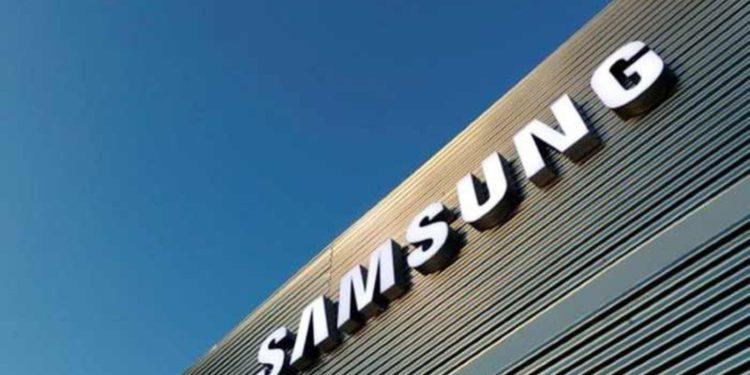Samsung Electronics has announced a strategic plan to expedite the production of AI chips by offering a one-stop shop service. It was unveiled during the Samsung Foundry Forum (SFF) U.S. at Device Solutions America headquarters.
Samsung Electronics is set to streamline AI chip production by integrating its memory chip, foundry, and chip packaging teams into a unified channel, reducing production time by approximately 20%.
“We are truly living in the age of AI – the emergence of generative AI is completely changing the technology landscape,” said Siyoung Choi, President and General Manager of the Foundry Business, at the forum event. Samsung projects the global chip industry revenue to reach $778 billion by 2028, driven by AI chip demand.
At the Samsung Foundry Forum, under the theme “Empowering the AI Revolution,” the company revealed its enhanced process technology roadmap, featuring new nodes SF2Z and SF4U. Samsung also introduced its integrated AI Solutions platform, leveraging its Foundry, Memory, and Advanced Package (AVP) businesses to offer high-performance, low-power semiconductors optimized for AI applications.
The event included presentations from industry leaders such as Arm CEO Rene Haas and Groq CEO Jonathan Ross, underscoring strong industry partnerships.
Despite being the global leader in memory chips, Samsung faces stiff competition in the foundry market from Taiwan Semiconductor Manufacturing Co. (TSMC). While Samsung’s market share slipped to 11% in the first quarter of this year, TSMC’s rose to 61.7%.
Samsung aims to prove its production capabilities to attract major customers like Nvidia Corp., especially as demand for AI computing components increases its earnings. However, Samsung also contends with emerging competition from Intel Corp., which is expanding its foundry services to capture new orders.
Samsung Electronics plans to accelerate AI chip production by integrating its memory chip, foundry, and chip packaging teams, aiming to cut production time by around 20%. At the Samsung Foundry Forum, the company highlighted its comprehensive AI solutions platform, which leverages its unique strengths in Foundry, Memory, and Advanced Package (AVP) businesses.
This turnkey approach addresses the soaring demand for AI chips, ensuring high performance and low power consumption, which is crucial for training and inferring large data sets efficiently.
In a bid to enhance its technology offerings, Samsung unveiled two new process nodes, SF2Z and SF4U. The SF2Z process incorporates optimized backside power delivery network (BSPDN) technology, which reduces voltage drop and improves power, performance, and area (PPA). This advanced 2nm process is set for mass production in 2027.
The SF4U, a high-value 4nm variant, offers PPA improvements through optical shrink and is scheduled for mass production in 2025. Samsung is also progressing with its 1.4nm process, targeting mass production by 2027.
Samsung’s gate-all-around (GAA) technology was also emphasized, a crucial innovation for meeting AI’s power and performance demands. Entering its third year of mass production, Samsung’s GAA process continues to show maturity in both yield and performance.
The company plans to mass produce its second-generation 3nm process in the latter half of this year and deliver GAA on its upcoming 2nm process. With its integrated approach, Samsung aims to streamline supply chain management and reduce time to market, positioning itself as a key player in the AI chip manufacturing sector.
GAA technology is crucial for developing more powerful AI chips as transistor sizes shrink, pushing the limits of physics. While competitors like TSMC are also working on GAA-based chips, Samsung is a pioneer. It plans to mass-produce its second-generation 3-nanometer chips using GAA in the second half of this year. Additionally, Samsung’s new 2-nanometer process for high-performance computing chips, featuring backside power delivery, is slated for mass production in 2027, enhancing power efficiency and performance.
Samsung is also diversifying its customer base and application areas, with an 80% increase in AI sales over the past year. The company’s technology portfolio, which includes specialty and 8-inch wafer derivatives, continues to meet market demands across various sectors, including automotive, medical, wearable, and IoT applications.
To further this momentum, Samsung will host the Samsung Advanced Foundry Ecosystem (SAFE™) Forum, emphasizing AI and exploring future possibilities. The forum will feature industry leaders discussing chip and system design technologies and collaborative growth opportunities.
Looking ahead, Samsung anticipates its AI-related customer base to grow fivefold, with revenue increasing ninefold by 2028. Despite challenges in qualifying advanced memory chips for Nvidia, Samsung remains focused on leveraging its GAA technology. Having led the industry in GAA-based 3-nanometer mass production since 2022, the company aims to deliver next-generation AI solutions, reinforcing its position as a key player in the semiconductor industry.
Also Read:
- LG Uplus and Meta Collaborate to Bring AI ixi to Instagram
- Hanwha Systems to Lead AESA Radar Technology for Unmanned Aircraft in KF-21 Program
- SK Telecom’s Metaverse Hotel Brings Fans Closer to K-pop Stars
- Kakao and LINE to Launch Kaia Blockchain Platform in the Philippines
- Intel and Naver Team Up to Counter Nvidia in AI Chip Market







